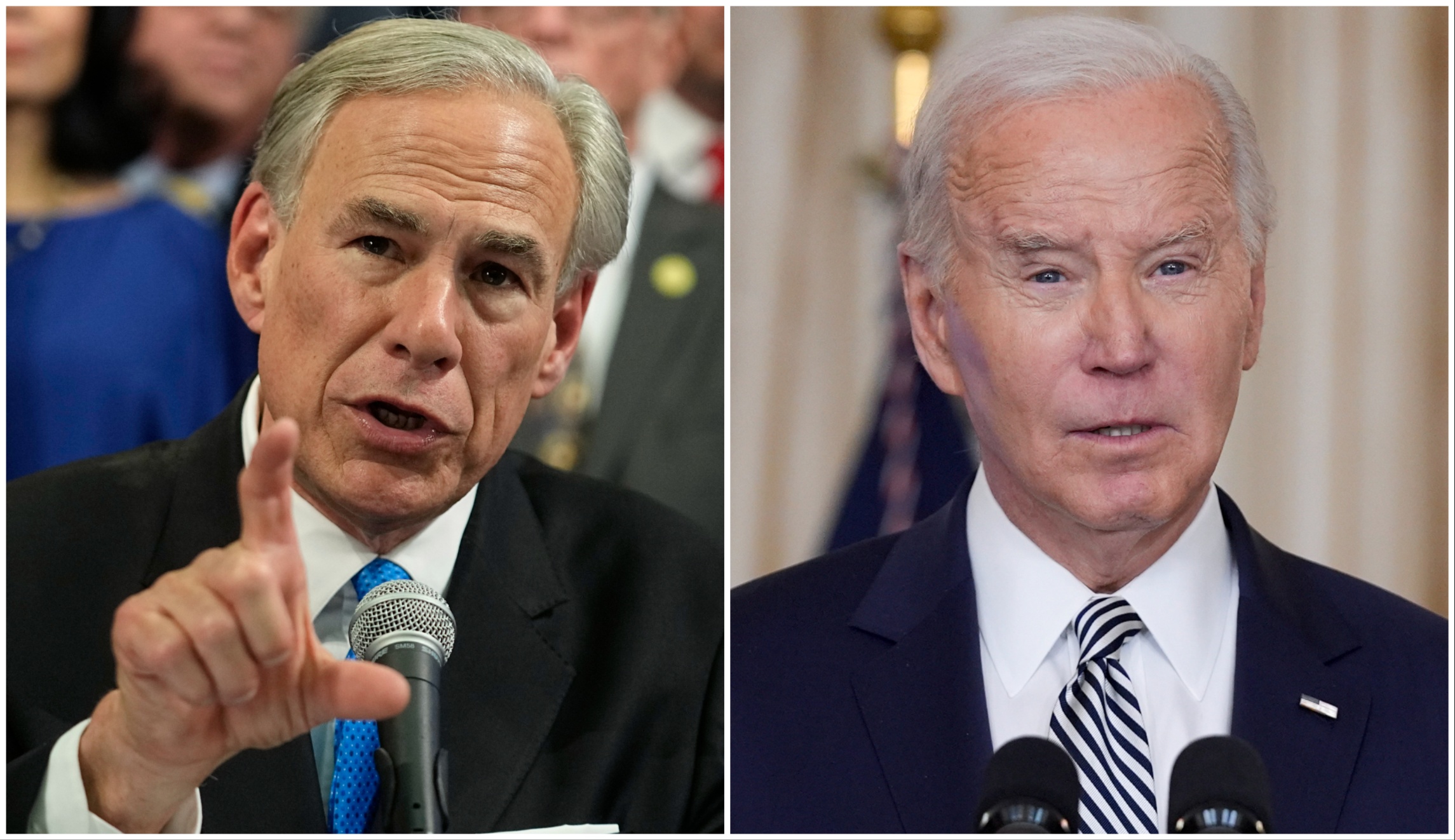

AUSTIN, Texas — State officials celebrated a Supreme Court victory that will allow Texas to forge ahead with plans to allow nonfederal police to arrest and deport illegal immigrants.
“In a 6-3 decision SCOTUS allows Texas to begin enforcing SB4 that allows the arrest of illegal immigrants. We still have to have hearings in the 5th circuit federal court of appeals,” Gov. Greg Abbott (R-TX) wrote in a post to X on Tuesday afternoon. “But this is clearly a positive development.”
State Attorney General Ken Paxton called it a “huge win” for the state in its border security efforts.
“HUGE WIN: Texas has defeated the Biden Administration’s and ACLU’s emergency motions at the Supreme Court. Our immigration law, SB 4, is now in effect,” Paxton wrote in a statement posted to X. “As always, it’s my honor to defend Texas and its sovereignty, and to lead us to victory in court.”
Less than a day earlier, the high court had temporarily halted the implementation of Senate Bill 4, which Abbott signed into law in December 2023 and was slated to take effect Monday.
The Texas law effectively created a state version of a federal immigration law and, in doing so, allows state and local police to enforce the state immigration law. Until now, nonfederal police have not been allowed to carry out immigration enforcement because immigration laws were federal policies, reserved for law enforcement at Customs and Border Protection and Immigration and Customs Enforcement agencies.
Democrats, including the Biden White House, were gravely concerned about the state’s newfound ability to enforce the law.
“We fundamentally disagree with the Supreme Court’s order allowing Texas’ harmful and unconstitutional law to go into effect. S.B. 4 will not only make communities in Texas less safe, it will also burden law enforcement, and sow chaos and confusion at our southern border,” White House press secretary Karine Jean-Pierre said in a statement Tuesday afternoon.
Rep. Joaquin Castro (D-TX) rebuked the high court’s decision and claimed the panel had allowed for the “trial run of a constitutional crisis.”
“SB 4 is an alarming state overreach that will likely lead to massive civil rights violations across our state,” Castro said in a statement. “At a time of rising anti-Hispanic violence, this law puts a target on the back of anyone perceived by law enforcement to look or sound like an immigrant.”
But Rep. Tony Gonzales (R-TX), whose district includes one-third of the entire southern border with Mexico, said the law will give the state unprecedented authority to take action where the Biden administration has failed to move.
“Texans have had enough of the Biden administration’s failed open border policies—time and time again, his administration has put America last. I represent over 800 miles of the southern border—we are tired of the chaos, destruction, and death this border crisis has caused,” Gonzales said in a statement. “SB4 will give Texas the ability to enforce against illegal immigration and do what President Biden refuses to do. Today’s ruling on SB4 by the Supreme Court is an important step forward in our fight to secure the southern border, and I stand by Texas as the state moves forward to enforce this legislation.”
The law also permits local judges to order an illegal immigrant in custody to be deported.
S.B. 4 was introduced by Republican state Sen. Charles Perry and Republican state Rep. David Spiller and passed during the state legislature’s fourth special session in 2023.
“This is a misdemeanor. We’re not trying to round up folks that have been here for years,” Spiller said in an interview last November.
Despite it potentially putting state and federal law enforcement at an impasse in terms of how both could be carrying out similar enforcement objectives, the head of the Border Patrol union had endorsed the state law.
“Border Patrol agents nationwide, not just in Texas, are grateful for Gov. Abbott’s leadership and willingness to recognize that it is the rule of law that keeps all Americans safe,” National Border Patrol Council President Brandon Judd said at the bill signing in December. “His actions have already saved lives, and his continued actions will undoubtedly save thousands more.”
The Justice Department sued in early January, delaying its start. The American Civil Liberties Union of Texas and the Texas Civil Rights Project also sued Texas on behalf of the Las Americas Immigrant Advocacy Center, American Gateway, and El Paso County in Texas. The two lawsuits were merged into one.
U.S. District Judge David Ezra temporarily blocked the law from taking effect on Feb. 29 on the basis that it was unconstitutional to allow nonfederal police to carry out a task that mirrored federal law.
Texas appealed that decision to the 5th Circuit Court of Appeals, forcing the Supreme Court to make the final decision.
The state has targeted the border crisis aggressively since it began in early 2021 when President Joe Biden took office and ended Trump administration immigration protocols.
Abbott launched Operation Lone Star and deployed 10,000 National Guard soldiers and Department of Public Safety officers to the border to help apprehend immigrants who cross the border illegally and attempt to get away. The state also entered into agreements with local landowners in regions where illegal immigration was severe to make criminal trespass arrests if immigrants were found on residents’ property.
CLICK HERE TO READ MORE FROM THE WASHINGTON EXAMINER
Over the past three years, the state has apprehended more than half a million illegal immigrants. Immigrants are turned over to federal Border Patrol agents. The state has also arrested 40,600 people and charged more than 36,000 with felony charges — primarily on trespassing and smuggling crimes.
Since the launch of Operation Lone Star, the multiagency effort has led to over 504,900 illegal immigrant apprehensions and more than 40,600 criminal arrests, with more than 36,300 felony charges. In the fight against the fentanyl crisis, Texas law enforcement has seized over 469 million lethal doses of fentanyl during this border mission.




